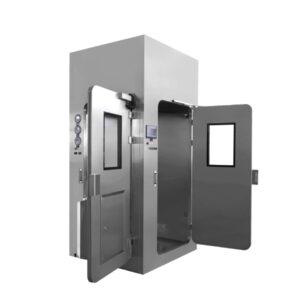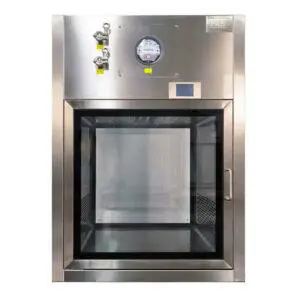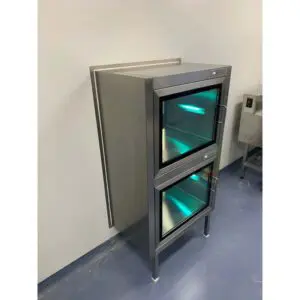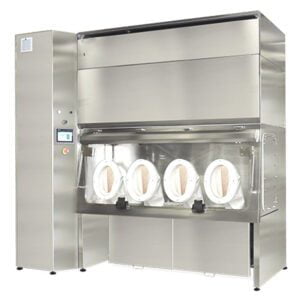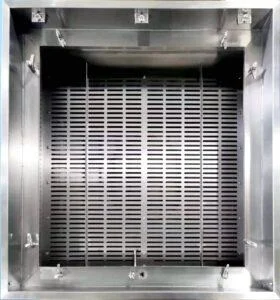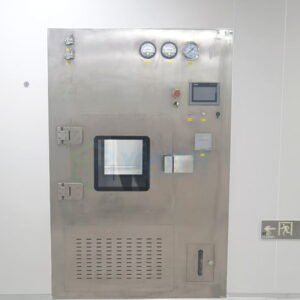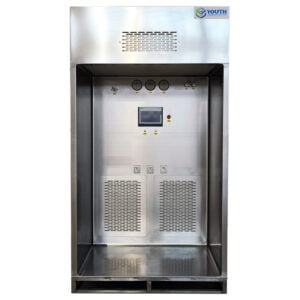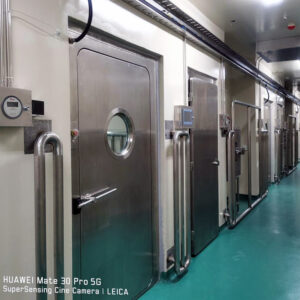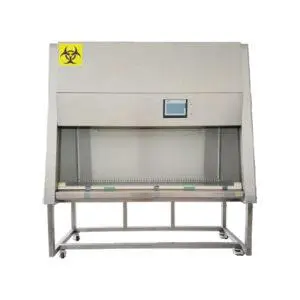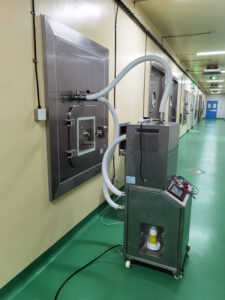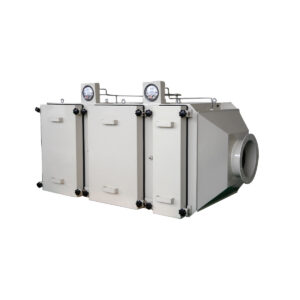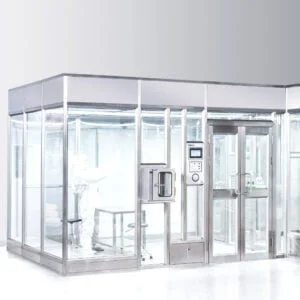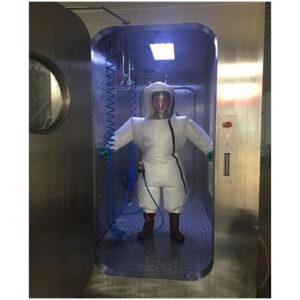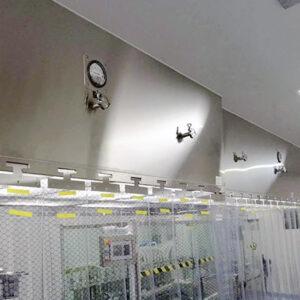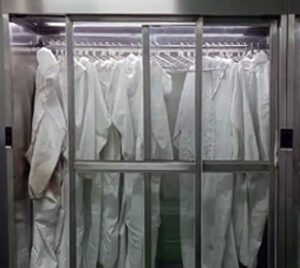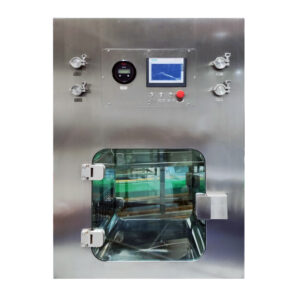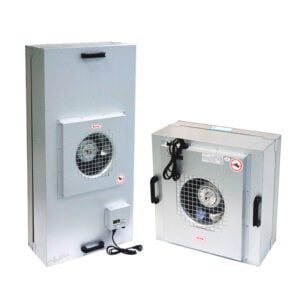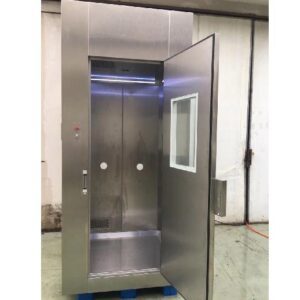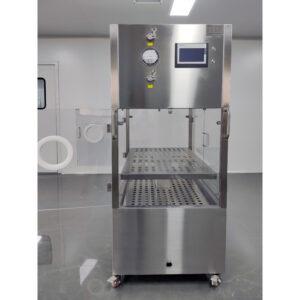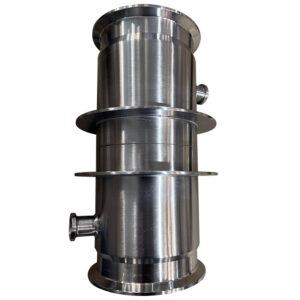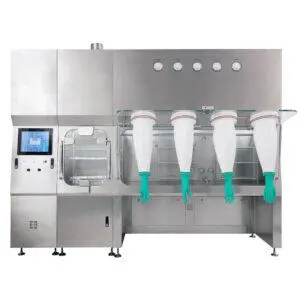Chemical shower operators play a crucial role in maintaining safety and cleanliness in various industrial and laboratory settings. As the demand for qualified professionals in this field continues to grow, the importance of proper certification cannot be overstated. This article delves into the world of chemical shower operator certification programs, exploring their significance, requirements, and impact on workplace safety.
The chemical shower operator certification process is designed to ensure that individuals responsible for operating and maintaining chemical showers are well-equipped with the knowledge and skills necessary to handle potentially hazardous situations. These programs cover a wide range of topics, from proper equipment operation to emergency response procedures, providing operators with a comprehensive understanding of their roles and responsibilities.
As we explore the various aspects of chemical shower operator certification, we'll examine the key components of these programs, the benefits they offer to both operators and employers, and the evolving landscape of safety regulations in the industry. By understanding the intricacies of these certification programs, we can better appreciate their role in promoting a safer work environment and ensuring compliance with industry standards.
Chemical shower operator certification programs are essential for maintaining workplace safety and compliance in industries dealing with hazardous materials.
What are the core components of chemical shower operator certification programs?
Chemical shower operator certification programs are designed to provide comprehensive training and assessment for individuals responsible for operating and maintaining chemical showers in various settings. These programs typically cover a wide range of topics to ensure that operators are well-prepared for their roles.
The core components of these certification programs generally include theoretical knowledge, practical skills training, and assessment modules. Participants are expected to gain a thorough understanding of chemical shower operation, maintenance procedures, safety protocols, and emergency response techniques.
A typical certification program will cover topics such as:
- Chemical shower types and their specific applications
- Proper operation and maintenance procedures
- Safety regulations and compliance requirements
- Hazardous material handling and storage
- Emergency response and decontamination protocols
- Personal protective equipment (PPE) usage and maintenance
Certification programs for chemical shower operators are comprehensive, covering both theoretical knowledge and practical skills to ensure operators are fully prepared for their responsibilities.
To illustrate the structure of a typical certification program, consider the following table:
| Module | Content | Duration |
|---|---|---|
| Introduction | Overview of chemical showers and their importance | 2 hours |
| Safety Regulations | Relevant industry standards and compliance requirements | 4 hours |
| Equipment Operation | Proper use and maintenance of chemical showers | 6 hours |
| Emergency Response | Procedures for handling accidents and decontamination | 4 hours |
| Practical Assessment | Hands-on evaluation of skills and knowledge | 4 hours |
By covering these essential components, certification programs ensure that operators are well-equipped to handle the challenges of their roles while maintaining the highest standards of safety and efficiency.
Why is certification important for chemical shower operators?
Certification for chemical shower operators is of paramount importance in ensuring workplace safety and regulatory compliance. As industries dealing with hazardous materials continue to evolve, the need for well-trained and certified operators becomes increasingly critical.
The importance of certification lies in its ability to standardize knowledge and skills across the industry. By completing a recognized certification program, operators demonstrate their competence and commitment to maintaining the highest standards of safety and professionalism.
Some key reasons why certification is crucial include:
- Enhanced safety awareness and practices
- Improved emergency response capabilities
- Increased confidence in handling hazardous materials
- Better compliance with industry regulations and standards
- Reduced risk of accidents and injuries
Chemical shower operator certification is essential for maintaining a safe work environment and ensuring that operators are equipped to handle potential hazards effectively.
To highlight the impact of certification on workplace safety, consider the following table:
| Aspect | Non-Certified Operators | Certified Operators |
|---|---|---|
| Safety Incidents | Higher frequency | Lower frequency |
| Regulatory Compliance | May have gaps | Consistently high |
| Emergency Response Time | Potentially slower | Typically faster |
| Equipment Maintenance | May be inconsistent | Regular and thorough |
As demonstrated by this comparison, certified operators are better positioned to maintain a safer work environment and respond effectively to potential hazards. This underscores the importance of YOUTH certification programs in promoting workplace safety and efficiency.
How do certification programs for shower operators benefit employers?
Certification programs for chemical shower operators offer numerous benefits to employers across various industries. By investing in these programs, companies can significantly enhance their safety standards, operational efficiency, and overall reputation.
One of the primary advantages for employers is the assurance that their chemical shower operators are trained to the highest industry standards. This not only reduces the risk of accidents and injuries but also helps in maintaining compliance with regulatory requirements.
Furthermore, certified operators are often more efficient in their roles, leading to improved productivity and reduced downtime. Their advanced knowledge and skills can contribute to better equipment maintenance, potentially extending the lifespan of chemical shower systems and reducing repair costs.
Employers benefit from certification programs through enhanced safety standards, improved regulatory compliance, and increased operational efficiency.
To illustrate the tangible benefits of employing certified chemical shower operators, consider the following table:
| Aspect | Impact on Employers |
|---|---|
| Safety Incidents | Reduced frequency and severity |
| Insurance Premiums | Potential for lower rates |
| Employee Retention | Improved due to enhanced skills and job satisfaction |
| Operational Efficiency | Increased through better equipment management |
| Regulatory Compliance | Easier to maintain and demonstrate |
By recognizing these benefits, employers can see the value in supporting and encouraging their employees to obtain Certification programs for shower operators. This investment in their workforce can lead to long-term improvements in safety, efficiency, and overall business performance.
What are the prerequisites for enrolling in a chemical shower operator certification program?
Enrolling in a chemical shower operator certification program typically requires meeting certain prerequisites to ensure that participants have the basic knowledge and experience necessary to benefit from the training. While specific requirements may vary depending on the certification provider and program level, there are some common prerequisites that aspiring operators should be aware of.
Generally, prerequisites for these certification programs may include:
- Minimum age requirement (usually 18 years or older)
- High school diploma or equivalent
- Basic understanding of chemistry and safety principles
- Prior work experience in a related field (for advanced certifications)
- Physical ability to perform the duties of a chemical shower operator
- Proficiency in the language of instruction
Prerequisites for chemical shower operator certification programs are designed to ensure that participants have the foundational knowledge and skills necessary to succeed in the training.
To provide a clearer picture of typical prerequisites, consider the following table comparing requirements for different certification levels:
| Certification Level | Education | Experience | Additional Requirements |
|---|---|---|---|
| Entry-Level | High school diploma | None required | Basic safety training |
| Intermediate | High school diploma | 1-2 years | First aid certification |
| Advanced | Associate's degree or higher | 3-5 years | Hazmat handling certification |
It's important to note that these prerequisites may vary depending on the specific certification program and the regulations of the country or region where the certification is being offered. Prospective participants should always check with the certification provider for the most up-to-date and accurate information regarding enrollment requirements.
How long does it typically take to complete a chemical shower operator certification program?
The duration of chemical shower operator certification programs can vary significantly depending on the level of certification, the depth of content covered, and the format of the program. Understanding the typical timeframes can help aspiring operators plan their professional development and set realistic expectations for achieving certification.
Certification programs may be offered in various formats, including:
- Intensive short courses
- Part-time evening or weekend classes
- Online self-paced learning
- Blended learning combining online and in-person components
The length of these programs can range from a few days for basic certifications to several months for more comprehensive and advanced qualifications.
The duration of chemical shower operator certification programs varies, typically ranging from a few days to several months, depending on the program's depth and format.
To provide a clearer picture of typical program durations, consider the following table:
| Certification Type | Format | Duration |
|---|---|---|
| Basic Safety Awareness | Online self-paced | 1-2 days |
| Operator Fundamentals | Intensive in-person | 1 week |
| Intermediate Certification | Blended learning | 4-6 weeks |
| Advanced Certification | Part-time evening classes | 3-4 months |
It's important to note that these durations are approximate and can vary based on the specific program and the individual's learning pace. Additionally, some certifications may require a period of practical experience or on-the-job training following the completion of the coursework.
What are the key topics covered in chemical shower operator certification exams?
Chemical shower operator certification exams are designed to assess a candidate's knowledge and understanding of essential topics related to the safe and effective operation of chemical showers. These exams typically cover a wide range of subjects to ensure that certified operators are well-prepared for their responsibilities.
Key topics often included in certification exams are:
- Chemical shower types and applications
- Safety regulations and compliance requirements
- Proper operation and maintenance procedures
- Emergency response protocols
- Hazardous material handling and storage
- Personal protective equipment (PPE) usage
- Decontamination techniques
- Record-keeping and documentation
Chemical shower operator certification exams cover a comprehensive range of topics to ensure operators are knowledgeable in all aspects of their role, from equipment operation to emergency response.
To illustrate the typical composition of a certification exam, consider the following table:
| Exam Section | Topics Covered | Percentage of Exam |
|---|---|---|
| Safety and Regulations | OSHA standards, industry guidelines | 25% |
| Equipment Operation | Shower types, maintenance procedures | 30% |
| Emergency Response | Accident handling, decontamination | 20% |
| Hazardous Materials | Chemical properties, storage protocols | 15% |
| Documentation | Record-keeping, reporting requirements | 10% |
This breakdown provides a general idea of the emphasis placed on different aspects of chemical shower operation in certification exams. However, the exact composition may vary depending on the specific certification program and level.
How often do chemical shower operators need to renew their certification?
Maintaining up-to-date certification is crucial for chemical shower operators to ensure they remain current with the latest safety standards, technologies, and best practices. Certification renewal requirements are put in place to verify that operators continue to meet the necessary competency standards throughout their careers.
The frequency of certification renewal can vary depending on the certifying body and the level of certification. However, most certification programs require operators to renew their credentials periodically, typically every few years.
Renewal processes may involve:
- Completing continuing education courses
- Passing a recertification exam
- Demonstrating ongoing work experience
- Submitting documentation of professional development activities
Chemical shower operator certifications typically require renewal every 2-5 years, depending on the specific program and level of certification.
To provide a clearer picture of typical renewal requirements, consider the following table:
| Certification Level | Renewal Frequency | Renewal Requirements |
|---|---|---|
| Basic | Every 2 years | 8 hours of continuing education |
| Intermediate | Every 3 years | 16 hours of continuing education + exam |
| Advanced | Every 5 years | 24 hours of continuing education + work experience |
It's important to note that these renewal requirements can vary significantly between different certification programs and regulatory bodies. Operators should always refer to their specific certification provider for the most accurate and up-to-date renewal information.
By maintaining current certification, chemical shower operators demonstrate their commitment to ongoing professional development and ensure they are equipped with the latest knowledge and skills to perform their duties safely and effectively.
In conclusion, chemical shower operator certification programs play a vital role in ensuring workplace safety and regulatory compliance across various industries. These comprehensive programs equip operators with the necessary knowledge and skills to handle potentially hazardous situations effectively.
Throughout this article, we've explored the core components of certification programs, their importance for both operators and employers, and the typical prerequisites and duration of these courses. We've also delved into the key topics covered in certification exams and the importance of regular certification renewal.
The benefits of certification extend beyond individual operators to encompass entire organizations, leading to improved safety standards, increased operational efficiency, and better regulatory compliance. As industries continue to evolve and face new challenges, the importance of well-trained and certified chemical shower operators will only grow.
By investing in certification programs and encouraging ongoing professional development, employers can create a safer work environment, reduce the risk of accidents, and demonstrate their commitment to maintaining the highest standards of safety and professionalism.
As we look to the future, it's clear that chemical shower operator certification will remain a crucial aspect of workplace safety in industries dealing with hazardous materials. By staying informed about certification requirements and continuously updating their skills, operators can ensure they are well-prepared to meet the challenges of their roles and contribute to a safer, more efficient work environment.
External Resources
CSWEA Certified Operator Training Program – This resource provides information on the Central States Water Environment Association's training program for wastewater operators preparing for certification exams.
Wastewater Operator Certification Program – The California Water Boards' page outlines certification levels and requirements for wastewater operators.
About Operator Certification | US EPA – This EPA page discusses the importance of operator certification for promoting Safe Drinking Water Act compliance.
Certification Exams – Minimum Requirements – The Washington State Department of Health details minimum requirements for waterworks operator certification.
Water Environment Federation (WEF) Operator Certification – This resource mentions WEF's role in providing training and certification opportunities for wastewater operators.
State Operator Certification Programs – The EPA provides a summary of state operator certification programs and their requirements.
- Final Guidelines for the Certification and Recertification of Operators – This EPA document outlines baseline standards for certification and recertification of water system operators.
Related Contents:
- Chemical Shower Testing: Post-Installation Certification
- Annual Certification for Mobile LAF Carts: Guide
- Chemical Shower Room Certification: Process Explained
- Chemical Shower Usage: Comprehensive Training Program
- Chemical Shower Room Lighting: Safety and Visibility
- Emergency Chemical Shower Rooms: Quick Response Guide
- Chemical Shower Refresher Training: Annual Guide
- Enclosed Chemical Shower Rooms: Privacy and Safety
- Stainless Steel Chemical Shower Rooms: Durability Guide

